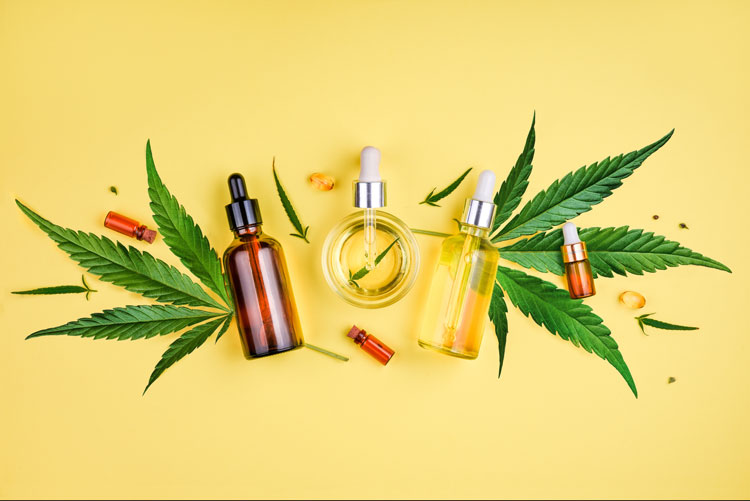CBD: What companies and retailers need to know
- Like
- Digg
- Del
- Tumblr
- VKontakte
- Buffer
- Love This
- Odnoklassniki
- Meneame
- Blogger
- Amazon
- Yahoo Mail
- Gmail
- AOL
- Newsvine
- HackerNews
- Evernote
- MySpace
- Mail.ru
- Viadeo
- Line
- Comments
- Yummly
- SMS
- Viber
- Telegram
- Subscribe
- Skype
- Facebook Messenger
- Kakao
- LiveJournal
- Yammer
- Edgar
- Fintel
- Mix
- Instapaper
- Copy Link
Posted: 20 November 2020 | Association for the Cannabinoid Industry | No comments yet
The CBD sector is notoriously confusing. Here, the Association for the Cannabinoid Industry offers sound advice for staying ahead and remaining compliant.


Cannabidiol, most commonly known by its abbreviation CBD, has established itself as one of the fastest growing food supplement products in the UK. A study undertaken by the Centre for Medicinal Cannabis in 2019 valued the market around £300 million. Given the trajectory of growth it should be well north of that figure now.
Millions of British adults are consuming it, and the industry has already surpassed sales of vitamin C and D combined. The same research predicts that CBD sales are projected to hit £1 billion by 2025, which is equivalent to the entire 2016 UK herbal supplement market.
At the same time, the UK is fast becoming the leading market in the world where a clear legal and regulatory framework for CBD to be sold as a food supplement has emerged. This is positive news for consumers, manufacturers and retailers. Firstly, to know what ‘good‐and‐proper’ looks like, and secondly, to enable retailers to know the right questions to ask their suppliers to determine what brands they should be stocking.
Cannabidiol, most commonly known by its abbreviation CBD, has established itself as one of the fastest growing food supplement products in the UK. A study undertaken by the Centre for Medicinal Cannabis in 2019 valued the market around £300 million. Given the trajectory of growth it should be well north of that figure now.
Millions of British adults are consuming it, and the industry has already surpassed sales of vitamin C and D combined. The same research predicts that CBD sales are projected to hit £1 billion by 2025, which is equivalent to the entire 2016 UK herbal supplement market.
At the same time, the UK is fast becoming the leading market in the world where a clear legal and regulatory framework for CBD to be sold as a food supplement has emerged. This is positive news for consumers, manufacturers and retailers. Firstly, to know what ‘good‐and‐proper’ looks like, and secondly, to enable retailers to know the right questions to ask their suppliers to determine what brands they should be stocking.
The UK’s Food Standards Agency (FSA) has laid out certain criteria that companies must abide by in order for their products to be sold legally (see section under ‘Regulatory framework’). It is critical that companies operating in this space are aware of these rules to ensure that they perform adequate due diligence, apply professional ethics and, with regards to retailers, do not purchase stock which they will not be legally allowed to sell.
Three key tips
Experts from the The Association for the Cannabinoid Industry (ACI), a membership organisation committed to nurturing a safe, legal and well‐regulated CBD market in the UK, has identified three key areas retailers must take into account when evaluating CBD products from their suppliers:
- Regulatory framework: make sure CBD companies are not making misleading claims about their CBD products
- Controlled substances: do not fall foul of the Misuse of Drugs Act
- Food safety: avoid food scare scandals.
Regulatory framework
CBD is classed as a ‘novel food’. Such foods can technically only be sold if the company has novel foods authorisation. As yet, no company in Europe has this authorisation for CBD.
You may therefore be wondering how it is possible to sell CBD products in the UK. In the UK, the FSA has always seen CBD as a novel food. However, the agency took a hands‐off approach due to the market being so big, with so many consumers already relying upon CBD for its perceived therapeutic benefits. Driving CBD into the black market would have been a disaster.
In an announcement made on 13 February 2020, the FSA set a deadline (31 March 2021) for CBD companies to have a validated novel foods application for each CBD product they sell. Validation is the first step to full authorisation, which can take up to three years to complete; whereas validation can take around 12 months – this includes gathering the necessary data.
With the UK leaving the European Union on 31 December 2020, the FSA will be responsible for processing these novel foods applications.
According to the FSA, any product that was on the market before the 13 February announcement has until 31 March 2021 to be validated. Should they fail to become validated, the product will not be legal to sell and they must withdraw from the market. That product can then only be legally sold once they have full authorisation from the FSA. Given that the typical shelf life of CBD products is two years and full authorisation could take three, this could be a costly situation.
This window of opportunity only applies to products that were already on the market before 13 February 2020. Any new products must have full novel foods authorisation, to be legally sold in the UK – in other words, any product not on the market prior to this date should not be stocked.
When retailers are reviewing the CBD products they stock, it is critical that they are aware of each item’s novel foods status, otherwise they may no longer legally sell them after FSA’s deadline. Trading Standards are fully aware of this situation and have committed to enforce it once this deadline expires.
Controlled substances
CBD is derived from hemp flowers. Hemp is a variety of cannabis that has very low amounts of THC. In the UK, THC is illegal to cultivate, process or sell without a license from the Home Office. Only CBD containing non-detectable amounts of THC are legal to sell. Retailers selling CBD products that contain THC could run afoul of law enforcement officers due to this controlled substance they contain. There is a persistent rumour that 0.3 percent THC is acceptable; but this is not true.
This misinformation stems from the fact that hemp grown in the UK can contain up to 0.3 percent THC. However, that rule does not extend to finished products.
Food safety
If thoughts of the police or Trading Standards coming knocking at your door are not worrying enough, then nothing grabs headlines more than food safety scandals. To understand the risks of CBD products, it is important to understand the supply chain of how this ingredient is produced.
As mentioned, CBD is derived from hemp plants. A resilient crop, hemp can grow in very poor or even contaminated soil. Recently, CBD products in the US were recalled after testing by the Florida Department of Agriculture and Consumer Services found high levels of lead in a batch of tinctures.1 Had these products been digested, they could cause various symptoms such as pain, nausea and kidney damage.
Many consumers find CBD helpful for ailments and rely on retailers to vet the quality of the product. It is of utmost importance that retailers are confident that CBD is safe for consumption.
The ACI can help
The ACI is committed to developing a safe and legal CBD sector in the UK and can offer membership to CBD manufacturers and brands who require guidance. The organisation helps all companies in the CBD supply chain navigate the regulatory environment of this dynamic market, and is presently in the process of launching a retailer membership package.
The ACI is launching a retailer membership package to support retailers to understand and navigate CBD procurement, in turn building up consumer confidence in the CBD industry.
For further information, click here.
Reference
- hempindustrydaily.com/florida‐cbd‐ company‐issues‐voluntary‐product‐recall‐for‐ heavy‐lead‐content/
Issue
Related topics
CBD hemp & cannabis, Contaminants, Food Safety, Ingredients, Regulation & Legislation
Related organisations
Association for the Cannabinoid Industry, Florida Department of Agriculture and Consumer Services, UK Food Standards Agency (FSA)








